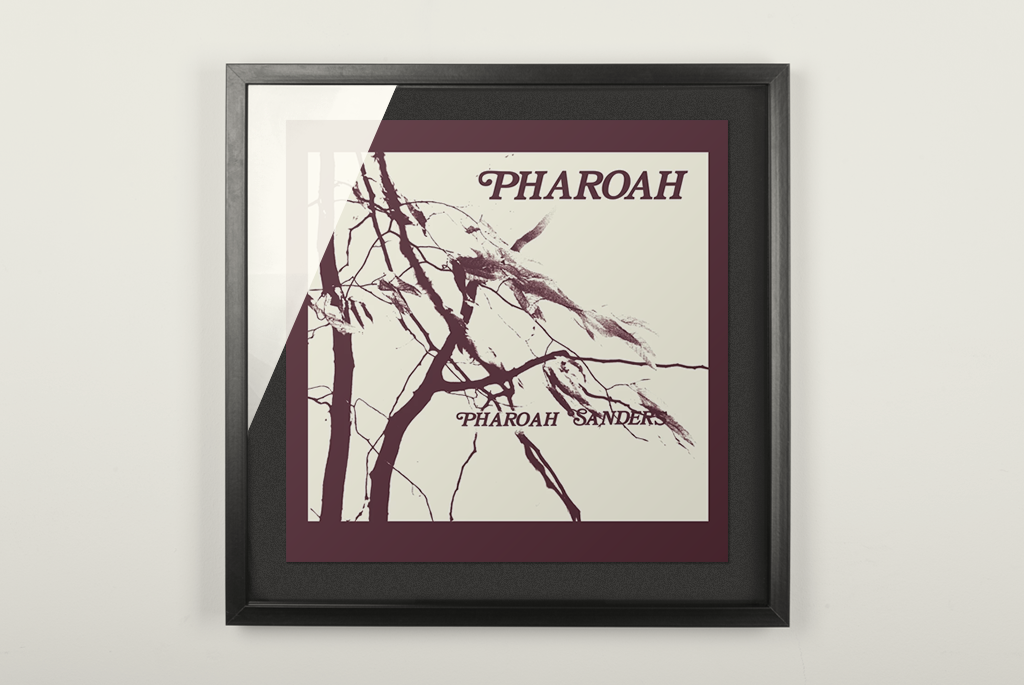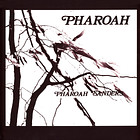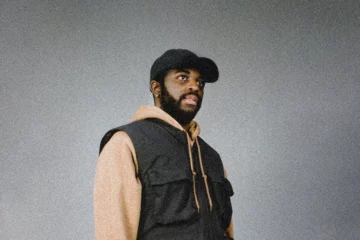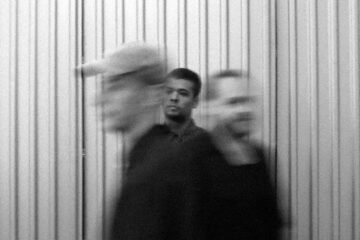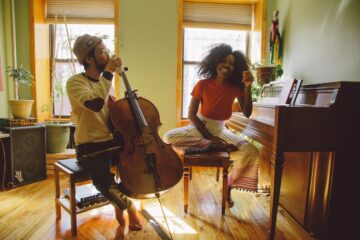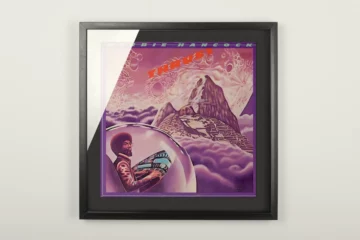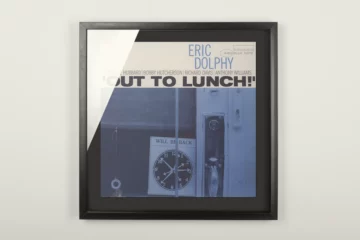»Unless you’re the Beatles, stories like this are never told,« Yale Evelev from Luaka Bop informs HHV. He’s referring to the story of an album recorded by jazz musician Pharoah Sanders in 1977 – at the height of his early career, with a stripped-down rock band, his wife and an overworked producer. »Pharoah« became, as Evelev says, »one of the most important records of the 20th century«. But Sanders, never known for his loquaciousness, would never speak of it again until shortly before his death.
Now Yale Evelev and Eric Welles-Nyström from Luaka Bop have finally broken the silence. They worked with Sanders on the official re-release. »He was never happy with the way the record sounded,« says Welles-Nyström. »But the more we talked to him, the more we learned about the circumstances surrounding the recording.« Sanders had wanted to make an album in 1977 with Bob Cummins, the founder of the New York »loft jazz« label India Navigation. The two had different ideas, which they didn’t share, because Sanders arrived at the studio with a line-up that overwhelmed Cummins with his jazz-like expectations – electric guitar, bass, the whole rock ‘n’ roll shebang.
21 minutes to eternity
When Sanders heard the recording afterwards he was horrified. He said: »Fuck this, we’ll do it again«. Tisziji Muñoz, who Sanders had hired a few years earlier at New York’s famous Village Vanguard jazz club, played guitar on the 1977 recording. He recalls that Cummins, the producer, was particularly patient with Sanders. At the same time, some of the recordings were made in a hurry, sometimes even in »some living room somewhere«. The sprawling »Harvest Time«, for example, sounds like it could have been recorded like that.
It’s no wonder that Sanders, who has just declared his love for us, is now taking us on a second date to a slaughterhouse.
…
No matter how things may have been, percussionist Greg Bandy had nothing to do on the track for 21 minutes. »Harvest Time« just shuffles off, two chords on the guitar and bass, and on it goes like that, because Sanders simply said so: You go first. Then I’ll join in. Then the sax cuts in, bopping hard and freezes everything for a moment. »When I hear it today, it feels the same as on the day we played it,« guitarist Muñoz tells HHV. The piece comes back to life, »more alive than a memory«, because in it lies a »deep form of receptivity to the sound in the moment«.
By the time the harmonium, played by Bedria Sanders, Pharaoh’s wife at the time, announces harvest time after a minimal musical eternity, you are long in the groove; especially in the love story between the two of them, which lingers and passes, triggering a feeling that knows no short cuts. It makes you want to listen. And you should. If you take 20 minutes every Sunday to listen to the entire piece, it will make you a more fulfilled, indeed even a better person.
Even the most beautiful story in the world has two sides to it
»Love Will Find A Way« shows that Sanders has always had two saxophonists in him, one sweet-talking and the other stormy. And when the Coltrane crony is not exercising his vocal cords and mimicking the singing style of Charles Mingus, the swan-like neck of the saxophone continues to squeal and croon. It’s a form of ping-pong between the extremes, something like bipolar jazz. It’s no wonder that Sanders, who has just declared his love for us, is now taking us on a second date to a slaughterhouse. That’s the thrill of the most beautiful thing in the world.
For Sanders, »Pharoah« wasn’t just an album, it was his endearing passion, recorded in late summer as a captured shift in time – and therefore »something special«, as Luaka Bop’s Welles-Nyström says. This is another reason why the final years were so stressful for Pharoah. Time and time again, poor quality bootlegs of the record appeared without permission being given. A situation that caused Sanders so much pain that it was almost impossible to talk to him about it, says Welles-Nyström. »But he was thrilled with our re-release and even discussed the idea of playing the pieces live with us. Unfortunately, that was one of the last conversations we had together.«

